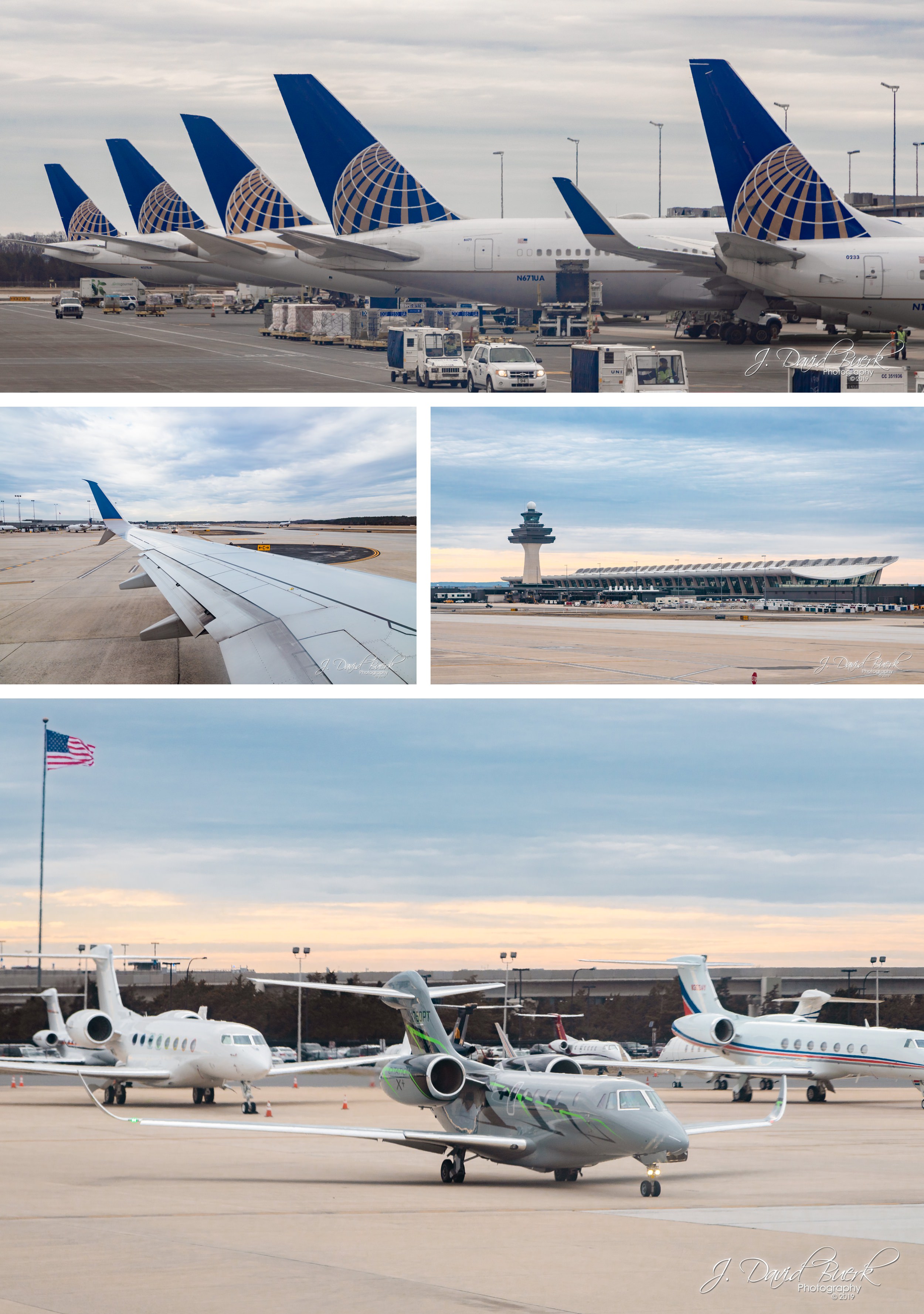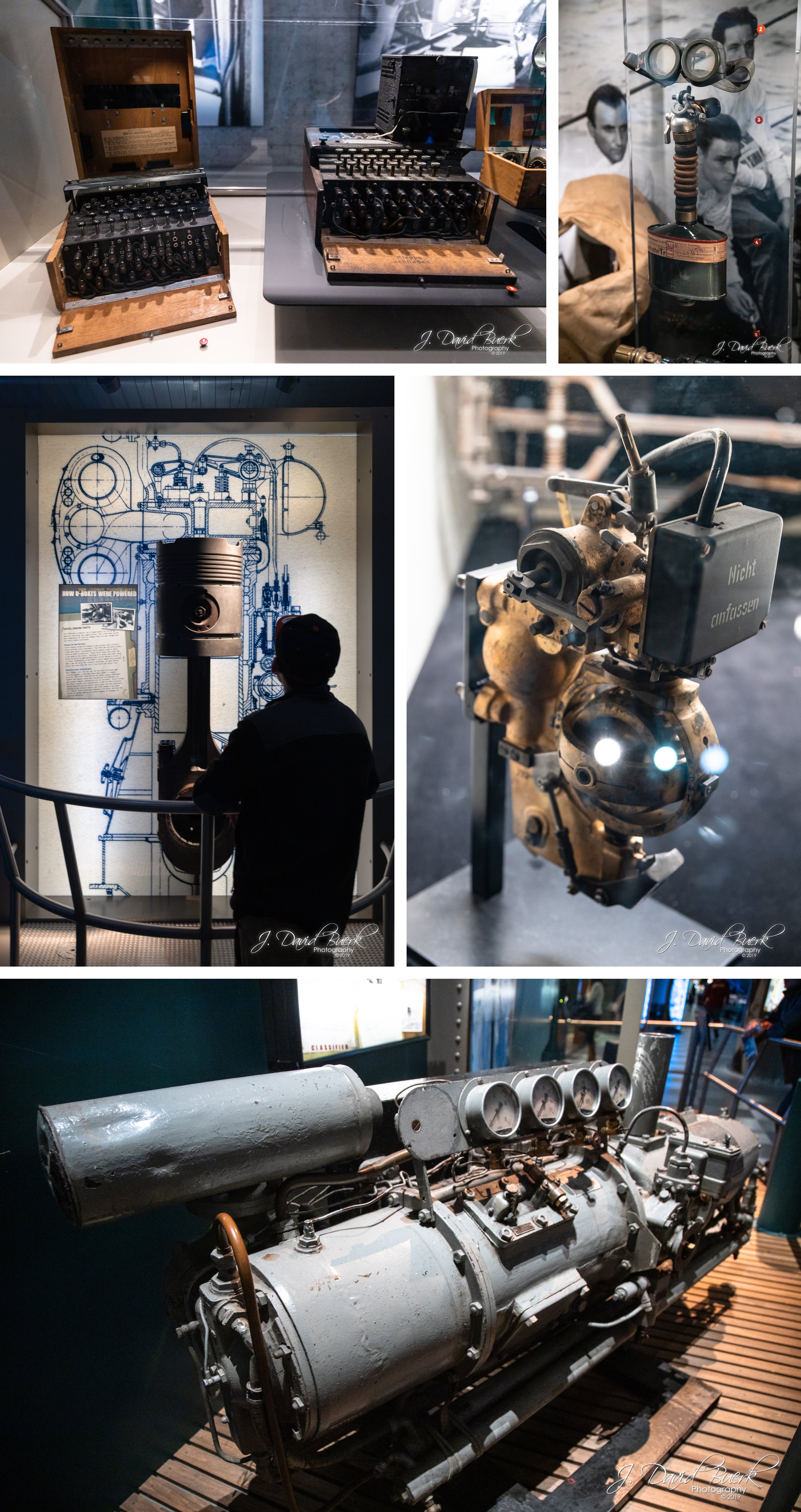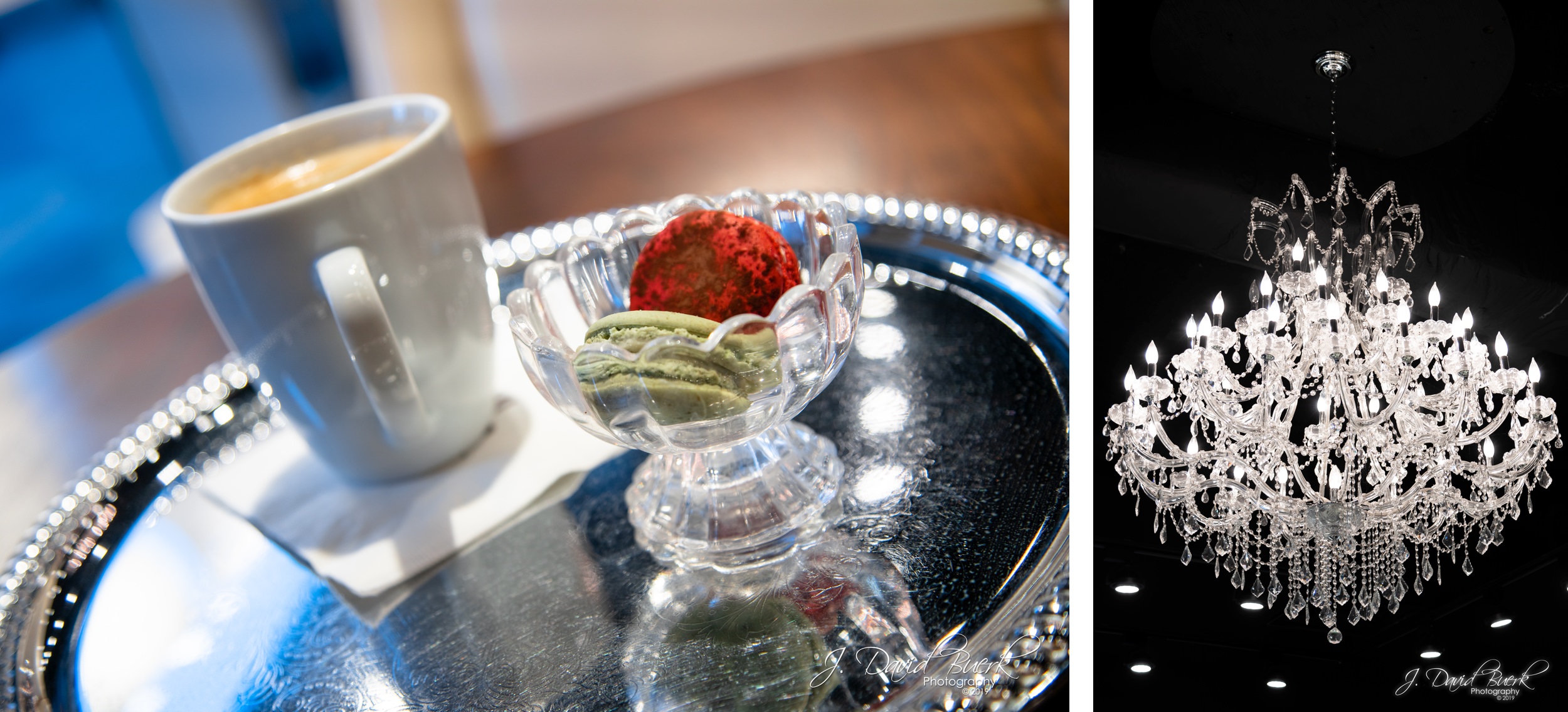Wow, April was such a busy month; I’ve been sitting on these pictures since my most recent trip to Chicago in March, and am just now getting around to sharing them with you. As you may recall, I was in Chicago in February for a photoshoot, but due to circumstances outside my control, that photoshoot was unable to take place, requiring me to reschedule for the next month. I’m happy to say this this time everything went off without a hitch!
In February, once I’d exhausted all options to try and get the photoshoot to work out, I spent the remainder of my time available exploring nearby Milwaukee - I didn’t get to see everything I’d wanted to, so this trip I’d debated spending my spare time checking out the spots I’d missed. Instead, however, I chose to not have any real plan in mind in case there was trouble with the scheduled photoshoot again. Luckily once the photoshoot was knocked out no problem, all my stress was received and I could relax a little.
IAD - ORD
By chance, I was able to spot all four of Chicago’s nearest airports while on approach to ORD. Interestingly, although I was flying on a 737-900, my flight was the day after all 737 MAX aircraft got grounded by the FAA, and it actually impacted my flight. ORD already had heavy ground traffic upon landing, causing a 20 minute taxi to the gate, but upon arriving at the gate my aircraft was blocked by a 737 MAX being tugged from the adjacent gate to a hardstand, but the tug moving the aircraft broke down, blocking out entrance to the gate - my aircraft was stranded on the taxiway for an hour waiting for another tug to arrive to move the MAX out of the way, while we were sitting there watching from our windows just a mere 200 feet from our jetbridge. I ordered a ribeye and tall porter upon finally arriving at my hotel.
Photoshoot Day at ORD
The night before my photoshoot I only got 3 hours of sleep thanks to stressing out whether the shoot would actually happen or not, despite having confirmation of the necessary paperwork. Luckily, on that drizzly morning, everything went just fine, and after returning to the hotel to deliver some requested preliminary images, I fell asleep at my computer after uploading the images. I slept long and deep that night, knowing I finally had the images I hadn’t been able to capture a month prior.
Downtown Chicago
I didn’t even set an alarm; I needed the rest, and wanted my Friday to be a stress-free celebration of the previous day’s success. The Chicago Museum of Science and Industry had been recommend to me by pretty much everyone I have ever spoken with who’s been to or lived in Chicago, so I decided to finally check it off my list. I didn’t want to waste time dealing with the CTA, plus there’s no stop nearby the museum anyway, so I ordered an Uber all the way from my hotel in Rosemont; my driver actually shot some sports photography I found out.
Chicago Museum of Science and Industry
Transportation Gallery
Unfortunately the Science and Industry Museum has extremely limited hours, and closes at four, so by time I’d gotten there through some freak midday traffic, gotten my tickets, and gotten inside, I only had about 3 hours to explore the museum - I missed the vast majority of the museum because I decided to focus on several exhibits that interested me rather than try and get a rushed view of everything. I scheduled a tour for 20 minutes after I arrived, and I killed that time in the small Transportation Gallery and Great Train Story next door.
The Great Train Story
I’ve seen professional train sets before, but this one takes the cake. Not only was it build around a scale model of downtown Chicago, but it featured mountains, tunnels, and even elements from other major US cities. There is even a scavenger hunt of Easter Eggs hidden all over the map, but I didn’t know about this until reading more about the exhibit at a later date.
There was also this mad scientist kind of display on the way over to my next stop, but I’m not sure which exhibit it was supposed to be a part of, or what all it was representing - look closely, because the harder you look the weirder it gets.
German Submarine U-505
One of my favorite movies is U-571, which tells the tale of an American submarine capturing a stranded German U-boat to obtain its onboard Enigma code machine. This Matthew McConaughey film is extremely fictionalized, and in fact the real U-571 was never captured; it was sunk via depth charging by the RAAF off the coast of Ireland. During the course of WWII, approximately 15 Enigma machine or Enigma codebook captures were made by the Allied Forces, only one of which was by US forces. In June, 1944, the US Navy captured the U-505, which provided much of the premise for U-571. However, unlike the film heavily implied, it was actually British forces that captured the first Enigma, three years prior when HMS Bulldog captured U-110 on May 9th, 1941. U-571 presents an amalgamated plot of the captures of U-110 and U-505. Although U-505 was not used in filming U-571, film crews reportedly visited and extensively studied the submarine to partially recreate parts of it for the film.
In reality, the U-505 sunk 8 ships over the course of its 12 patrols and two year service history. The US Navy launched a six ship Task Group to hunt U-505 when British Ultra intelligence intercepted generalized locations of German U-boats off the coast of Spain. The Task Group, consisting of one aircraft carrier and five destroyers, made sonar contact with the U-505 on June 4th, 1944, shortly after Captain Daniel V. Gallery had called off the search as the Task Group had exhausted their fuel. With air support from aircraft carrier Guadalcanal, destroyer Chatelain dropped depth charges that crippled the U-505, forcing it to surface. Oberleutnant zur See (Lieutenant) Harald Lange ordered his crew to abandon ship and scuttle the boat, but the 59 man crew could not disembark before the nine member US boarding party was able to board the U-505, close the valves filling the submarine with seawater, and disarm scuttling charges set by the German submariners.
All but one of the U-505’s 59 man crew survived the Allied assault and capture, and only three other crew members were injured. The crew was ferried to Bermuda aboard the Guadalcanal, before being transferred to a POW camp in Ruston, Louisiana several weeks later. To maintain OPSEC and the illusion to Germany that the U-505 had been sunk with no survivors, the POWs were kept separately from others in the prisoner population, and all letters or attempts to communicate outside the camp were confiscated; a direct violation of the Geneva Convention. The imprisoned crew members even constructed makeshift balloons out of cellophane and hydrogen yielded from mixing cleaning chemicals in order to convey their letters over the camp walls with the hope residents of the nearby town would find them and forward the messages to their family, but these attempts were unsuccessful. Some of the POWs learned and played baseball with members of the US Navy baseball team who were tasked as guards at Camp Ruston. Upon the end of the war in 1945, the interned crew began being returned to Germany, with the last remaining captives repatriated in 1947.
As for the U-505, the United States and Allied forces had to hide the submarine to maintain the illusion to the Axis powers that they had captured the missing boat and the valuable Enigma ciphers and codebooks it carried. The U-boat was ferried to a naval base in Bermuda to be studied by US intelligence and naval engineers. To further hide the captured German U-boat, the U-505 was painted to resemble a US submarine, and renamed the USS Nemo. By 1946, US intelligence had gathered all useful information from the U-boat, and dismantled most of the ship’s interior. Having no more use for the ship, the Navy planned on using the U-505 for target practice until it sank. Rear Admiral Daniel V. Gallery got wind of the plan, and through his brother connected the Chicago Museum of Science and Industry with the Navy to form a plan to donate the U-505 to the newly formed museum, which was already planning on acquiring a submarine to exhibit. On September 25th, 1954 the U-505 was dedicated was dedicated as a permanent exhibit, and a war memorial to all sailors whose lives were lost in the first and second Battles of the Atlantic. In 2004, due to over 50 years being stored outdoors, the U-505 showed heavy wear from the elements, and was subsequently restored and moved to a newly built permanent dry dock inside the Museum of Science and Industry’s East wing.
An interesting bit of U-505 history conveniently left out of the PG exhibit and tour: the U-505’s 10th patrol endured a very long and severe depth charging. Crushing under the pressure, Kapitänleutnant (Captain lieutenant) Peter Zschech committed suicide during the depth charging, shooting himself in the head in front of his crew in the U-boat’s control room pictured below. First Watch Officer Paul Meyer took over command and ensured the U-505 survived the depth charge attack. Upon returning to port, Meyer, in typical authoritarian dictatorship fashion, rather than being awarded for his quick action to take command, successfully thwart the attack, and save the boat, was simply “absolved from all blame” for the “embarrassing incident” by the Kriegsmarine.
Henry Crown Space Center
After touring the U-505, I head over to the small space exhibit. I will never not look at space stuff. I did, however, speed through since we have two Air and Space museums here in DC, and I spent almost an entire day exploring Space Center Houston in 2016.
Fast Forward & Genetics
This part of the museum was a little confusing, as I thought they were the same exhibit at first. I sped through these because I was mostly just interested in seeing the baby chicks!
Fast Forward: Inventing the Future was mostly conceptual exhibits about future-tech. Genetics interested me, but was overrun with kids and I chose to explore other parts of the museum rather than fight a horde of 6 year olds to read the exhibit placards.
Science Storms
Unfortunately by time I reached Science Storms the museum was 10 minutes from closing. I got an up-close view of the several story tall tornado, but didn’t stay for the last demonstration of the day to instead check out the museum gift shop; they had lots of things I wanted, but none that would be convenient to carry around the rest of the day, particularly with the plans I’d made for later in the night.
Pioneer Zephyr
The Pioneer Zephyr is a diesel luxury train from the 1930s that makes you feel like a character from Murder on the Orient Express by just standing nearby. On May 26th, 1934, the train set a speed record by covering the 1,015 trip from Denver, Colorado to Chicago, Illinois "Dawn-to-Dusk," in 13 hours 5 minutes, with an average speed of 78mph and a top speed of 112.5mph.
Hyde Park
It was 4PM and I still hadn’t eaten anything except half a chicken wrap while waiting for my Uber, so I walked the few blocks over to Hyde Park for lunch. I ended up at some local place that had multiple award winning chili, so I was expecting something to rival Ben’s Chili Bowl; the chili was so bad I didn’t even finish it, but the rest of my food was what I expected. After a bit of exploring, coming across a delightfully creepy ivy-clad house, I settled down at a Pâtisserie to relax and unwind with some coffee and macarons before heading uptown to the only thing I’d really planned for the day.
Check out how this house looks in Summer when the ivy is growing. For bonus points, change the display date and watch as the ivy slowly grows up the side of this home over the last 15 years! It’s beautiful.
Buddy Guy’s Legends: Nellie Travis with Tommy McCracken
Now for the only thing I’d really planned on, if you can even call it that. The previous evening, while eating dinner after my photoshoot, I noticed that Buddy Guy has a blues club downtown. Although Buddy hails from Louisiana, he is a true legend of Chicago Blues… with his own Southern influences that create his unmistakable, unique tone and style of playing. Today he calls Chicago home, which isn’t too surprising.
I bought tickets to whatever show was playing on my only free evening, without even looking up who Nellie Travis or Tommy McCracken even are - if they’re playing at Buddy Guy’s own club, they’re gonna to be good. I went knowing there was a chance Buddy Guy might even be present, but that was secondary; I intended to relax with creole soul food and cocktails for the night, and enjoy some live music. And that’s exactly what I did - they had an oyster po’boy on the menu! Two of my favorite foods, combined!
Even though I arrived late - Tommy McCracken and his band started playing as I walked in the door - I got the last open seat at a front row table despite the rest of the club being standing room only!
After the one-hour opening set from Tommy McCracken, it was time for Nellie Travis, who delivered wit with her soulful voice. Some of her songs even included audience participation - she may or may not have put her microphone to my lips during “Sweet Home Chicago…”
Toward the end of Nellie’s first set, about five minutes before he took the stage, I spotted Buddy Guy walking through the crowd and nodding to Nellie. My suspicion turned out to be correct; Buddy Guy, the blue legend himself, took to the stage to sing a few songs with Nellie’s band. Or, if you’re familiar with Buddy, his music, and his personality, talk about life and give relationship advice.
Buddy’s relationship advice for the night can be summarized:
Hell hath no fury like a woman scorned, so treat your lady right.
And ladies, treat your man right.
Respect one another; don’t run around playing. You’re playing with fire, and you’re gonna get burned.
Buddy only plays full sets at select shows in January, so no guitar this time :-( But that’s okay; watching him talk with the audience with his strong, unmistakable voice was more than I could have asked for.
It was late, so after chatting with a girl at the front desk about some of her most memorable experiences working at such a unique venue, I dipped out as Nellie Travis was beginning her second set.
ORD - IAD
Sadly it was time to head home the next morning; Chicago has really grown on me - the only thing I don’t enjoy is the cold, which is true anywhere I go. Although this trip was still chilly, the little remaining ice on Lake Michigan from February’s Polar Vortex I saw on the flight here had seemingly melted by time I flew back to DC three days later. Of note, despite all the flights I’ve taken, this was my first time on a 757. Til next time, Chicago!














































